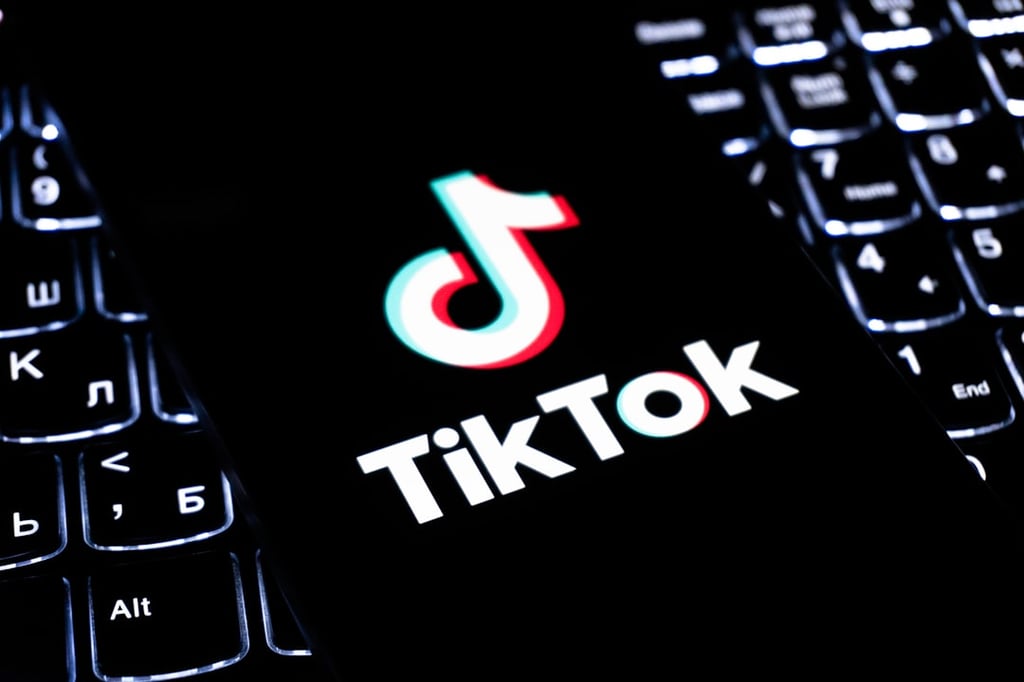If everything in technology seems unreal these days, it could be because a culture of fakeness is going mainstream. Technology is being challenged on all sides by a rising tide of the phony, the fake, the counterfeit, the hoax, and the bald-faced lie.
The Dumb IE User Hoax
Users of Microsoft’s Internet Explorer browser have lower IQs than users of alternative browsers, according to a widely circulated story in the past week. Too bad the story is fake. And just about everybody fell for it.
The original hoax story reported that a company called ApTiquant conducted a study to rank the relative intelligence of browser users. It turns out, as the BBC discovered, that the ApTiquant web site had been put up within the past month and used staff photos from another company’s web site along with fake names.
The BBC also found that company employees could not be reached by telephone. Despite the flakiness of the source, and the absurdity of the claim, the original hoax story was reported as real by CNN, Forbes, NPR, the Daily Mail, the Telegraph, New York Magazine, CBS News, the Seattle Post Intelligencer, the International Business Times, Mashable, Gawker, the Huffington Post, PC World, Zdnet — even the BBC itself, initially.
Why is everybody so quick to believe a hoax story like this? If the IQ claim had been made about members of one political party or the other, the hoax would have been exposed in minutes. Why isn’t there more skepticism out there about technology-based claims?
Newt Gingrich’s Allegedly Phony Following
The gossip blog Gawker accused presidential candidate Newt Gingrich this week of using outside companies to “buy” or artificially inflate his Twitter follower numbers. The social media analytics site PeekYou says they used an algorithm to determine that some 92 percent of Gingrich’s Twitter following is fake.
Gingrich’s press secretary has denied the charge.
Regardless of whether Gingrich’s numbers have been faked, the reality is that you can find a thriving market for buying followers online. Dozens of sites, including BuyTwitterFollowers.com. You can also buy Facebook fans, YouTube subscribers, Tumblr followers and “web traffic.”
Whenever you see someone with high follower counts, you can’t trust that number because the social network might be fake
Counterfeit Apple Stores
A blogger recently posted pictures of a fake Apple Store in Kunming, China. The duplicate store copied everything from the wooden tables to employee uniforms. Further investigation revealed that several such stores existed in China, and even the employees may have thought they worked for Apple.
The Chinese government is reportedly shutting them down.
Another Chinese store, called 11 Furniture Store, has apparently copied the look and feel, including color scheme and general layout, of Ikea furniture stores. The counterfeiting of Western stores and restaurants is rampant in China, from fake Starbucks to duplicate Diary Queens.
Fake iPhone 4 and 5
A video popped up on YouTube last month showing what looks exactly — and I mean exactly — like an Apple iPhone 4. In reality, it’s a counterfeit running Google’s Android platform, with an interface that duplicates the iPhone’s iOS.
My favorite moment in the video is when the narrator says: “This is a totally different product from others.” Uh, no, it’s exactly the same as others…
If the Android-based iPhone 4 wasn’t impressive enough, another video surfaced this week of a fake iPhone 5 in China. Note that Apple hasn’t even announced a ship date for the real iPhone 5.
Apple watchers are speculating that the counterfeit may be just like the real thing, and based on inside information smuggled out of the factories.
The most interesting aspect to this trend isn’t the speed and skill by which fake phones are built in China, but by an apparent lack of skill in designing something original in that country.
Why can’t China innovate? And if they can, name your favorite Chinese invention or original brand from the last 20 years. The only brand that comes to mind when I ask this of my technology minded friends is Lenovo. That’s a great company, but what do they make? IBM “clones”!
Of course, there’s nothing new about Chinese competence in the creation of knock-offs. What may be changing, however, is that China’s acceptance of fakes, or ambivalence toward brand and originality, may be spreading globally.
Are people increasingly willing to trade authenticity for lower price? It’s hard to tell.
It also appears that the sheer number of fake tech goods is on the rise. US Customs officials report a 34 percent increase in fake goods seized as they come flooding into this country.
Hotel and Restaurant Reviews Written by Ringers
The usefulness of services like Yelp and the “reviews” for businesses on Google Maps may be increasingly compromised by fake reviews.
“PR and advertising agencies,” according to one recent post, hire people to write “favorable reviews” to boost client sales. (This may be another example of China’s influence spreading worldwide. Now American marketers are raising their own “50 Cent Armies.”)
Cornell University researchers are even working on software algorithms to spot phony reviews.
Fake Sites for Phishing
As security researchers find more ways to thwart more traditional methods of hacking and online fraud, the unscrupulous increasingly rely on phishing attacks. These often involve either fake news stories based on real events, or fake web sites and services masquerading as the real thing.
One recent example is a pitch for a fake player for Adobe Flash for Mac OS X that circulated online. When users clicked on it to get the player, they launched the installation of Trojan software while an authentic-looking but phony web page is displayed.
Another is the spread of fake news stories on current events, such as news about Amy Winehouse or the Norway attacks.
Broadband Bamboozlers
A recent FCC report found that the “gap” between advertised broadband speeds promised by ISPs and the actual speeds experienced by customers is narrowing. Now, DSL customers are getting 82 percent of what they pay for and cable customers 93 percent during peak hours.
While customers are still being lied to, the situation has improved since 2009, when measured performance was closer to 50 percent of speeds advertised.
We’re supposed to be grateful.
The Pseudonym Opportunity On Google+
Google has been lauded for its successful launch of the Google+ “project,” but also pilloried by the tech press for mishandling its “real names” policy. Google insists that people not use titles (“Doctor Doolittle”), pseudonyms, or other alternatives to given names on the social network.
The trouble with Google’s current policy is that it will lead to more lying and fakery. I could clear my browser cache right now, re-load Google+ and set up an account with the name “Jim Jones.” Google would never know, and neither would you.
Some people want to use names other than the ones their parents gave them at birth for a very long list of legitimate and illegitimate reasons. What Google should do is to allow pseudonyms, but then require disclosure of the fact (“This name is a pseudonym.”).
People will use fake names on Google+. The only question is will Google’s policy lets others know they’re fake, or will it drive that fact underground? Allowing pseudonyms but requiring disclosure of that fact would be one small victory in the fight against fakeness online.
Meanwhile, we’ve got larger issues to deal with. The world of technology is increasingly fake. Liars are becoming more brazen. The press is getting lazier. The public is becoming more gullible and accepting of fraud and counterfeiting.
If we don’t get skeptical and more intolerant of fake tech, we may find ourselves in an economy where it seems that nothing is real and nobody can be trusted.
Let’s not accept fake tech anything. Let’s demand skepticism from the media. Let’s require online transparency from politicians. Let’s reject counterfeit products and stolen branding. And let’s seek out any company, organization or individual that deliberately misleads us and shame them in the public square.
It’s time to start demanding reality, authenticity and honesty in technology — before it becomes rare.
-
Ethics and Artificial Intelligence: Driving Greater Equality
FEATURE | By James Maguire,
December 16, 2020
-
AI vs. Machine Learning vs. Deep Learning
FEATURE | By Cynthia Harvey,
December 11, 2020
-
Huawei’s AI Update: Things Are Moving Faster Than We Think
FEATURE | By Rob Enderle,
December 04, 2020
-
Keeping Machine Learning Algorithms Honest in the ‘Ethics-First’ Era
ARTIFICIAL INTELLIGENCE | By Guest Author,
November 18, 2020
-
Key Trends in Chatbots and RPA
FEATURE | By Guest Author,
November 10, 2020
-
Top 10 AIOps Companies
FEATURE | By Samuel Greengard,
November 05, 2020
-
What is Text Analysis?
ARTIFICIAL INTELLIGENCE | By Guest Author,
November 02, 2020
-
How Intel’s Work With Autonomous Cars Could Redefine General Purpose AI
ARTIFICIAL INTELLIGENCE | By Rob Enderle,
October 29, 2020
-
Dell Technologies World: Weaving Together Human And Machine Interaction For AI And Robotics
ARTIFICIAL INTELLIGENCE | By Rob Enderle,
October 23, 2020
-
The Super Moderator, or How IBM Project Debater Could Save Social Media
FEATURE | By Rob Enderle,
October 16, 2020
-
Top 10 Chatbot Platforms
FEATURE | By Cynthia Harvey,
October 07, 2020
-
Finding a Career Path in AI
ARTIFICIAL INTELLIGENCE | By Guest Author,
October 05, 2020
-
CIOs Discuss the Promise of AI and Data Science
FEATURE | By Guest Author,
September 25, 2020
-
Microsoft Is Building An AI Product That Could Predict The Future
FEATURE | By Rob Enderle,
September 25, 2020
-
Top 10 Machine Learning Companies 2021
FEATURE | By Cynthia Harvey,
September 22, 2020
-
NVIDIA and ARM: Massively Changing The AI Landscape
ARTIFICIAL INTELLIGENCE | By Rob Enderle,
September 18, 2020
-
Continuous Intelligence: Expert Discussion [Video and Podcast]
ARTIFICIAL INTELLIGENCE | By James Maguire,
September 14, 2020
-
Artificial Intelligence: Governance and Ethics [Video]
ARTIFICIAL INTELLIGENCE | By James Maguire,
September 13, 2020
-
IBM Watson At The US Open: Showcasing The Power Of A Mature Enterprise-Class AI
FEATURE | By Rob Enderle,
September 11, 2020
-
Artificial Intelligence: Perception vs. Reality
FEATURE | By James Maguire,
September 09, 2020
SEE ALL
ARTICLES







